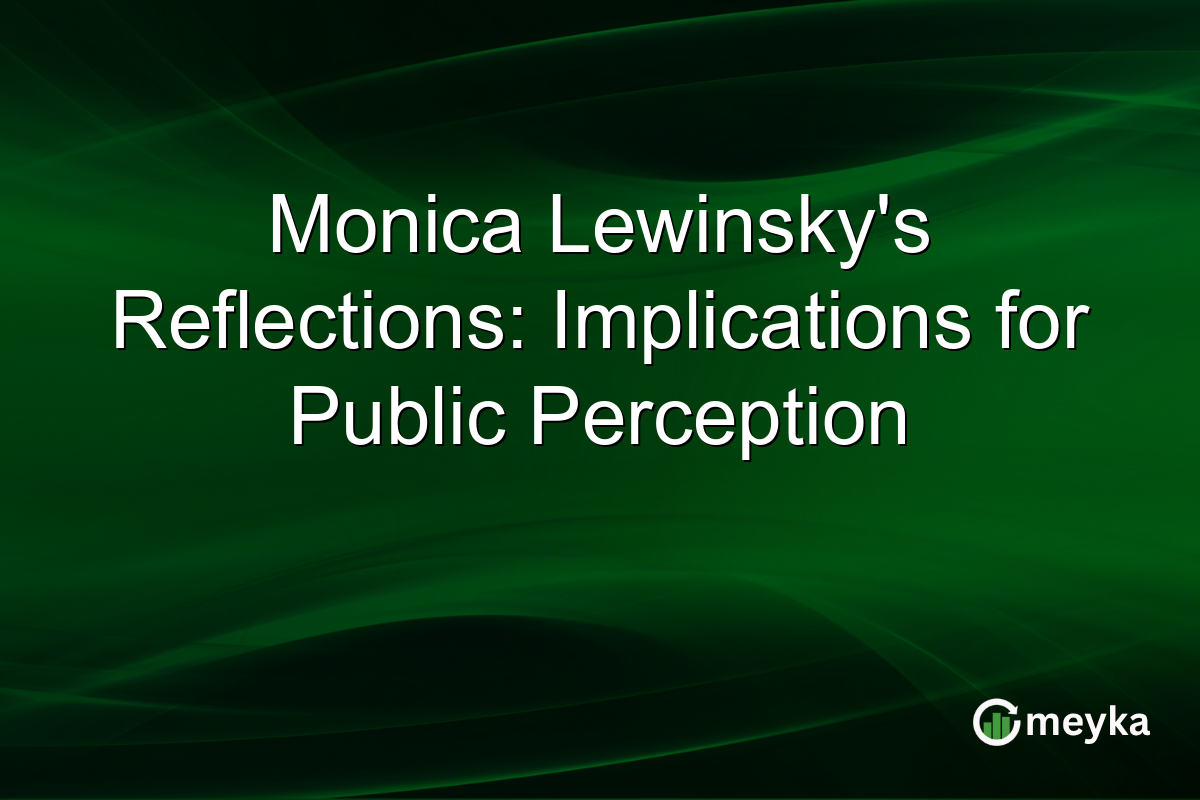Monica Lewinsky’s Reflections: Implications for Public Perception
Monica Lewinsky’s reflections on her past experiences regarding the Bill Clinton affair have reignited discussions about public perception and accountability. Her insights, especially in the areas of digital transparency and cyberbullying, highlight ongoing societal challenges. As digital platforms evolve, Lewinsky’s story offers crucial lessons on managing public scrutiny in today’s world.
The Evolution of Public Perception
Monica Lewinsky’s narrative has seen a dramatic shift over the years. Initially, she faced severe public shaming, largely fueled by a media frenzy around the Bill Clinton affair. In the 1990s, traditional media largely influenced public opinion. Today, however, digital platforms offer individuals a voice to reshape their narratives. This shift highlights the changing dynamics of public perception, showing a gradual move towards more nuanced understandings of personal and public accountability. https://www.aol.com/monica-lewinsky-revealed-her-rock-181849196.html analyzes how public perception evolves through transparency and voice reassessment.
Implications for Accountability
Lewinsky’s reflections bring into question how public figures are held accountable. During the Clinton-Lewinsky scandal, accountability was skewed, often placing the burden on Lewinsky. In contrast, today’s accountability measures are more distributed, thanks in part to social media pressure. This evolution is crucial as it shows society’s growing intolerance for one-sided narratives and its demand for fair assessments. This demonstrates how the landscape of accountability has broadened, impacting how public figures are scrutinized relentlessly and more equitably.
Cyberbullying and Digital Transparency
In today’s digital age, Lewinsky’s past experiences have provided a framework for understanding cyberbullying. Her advocacy highlights how online spaces can perpetuate harassment. With the rise of social media, victims now face scrutiny from millions. Lewinsky’s story underscores the importance of creating supportive online environments. Digital transparency can inadvertently amplify hostile behavior; hence, effective strategies to mitigate cyberbullying are essential. This underscores the need for platforms to implement robust measures against online harassment, paving the way for safer digital experiences.
Final Thoughts
Monica Lewinsky’s reflections on the infamous affair with Bill Clinton illuminate crucial issues regarding public perception and accountability. Through her journey, we see how narratives can be reshaped in a digital age, where transparency can either illuminate or distort the truth. Her advocacy against cyberbullying emphasizes the necessity for online platforms to foster safe interactions. As society continues to grapple with these challenges, Lewinsky’s story remains a pivotal reference point. Understanding and addressing these complex issues will guide us towards a more empathetic and informed public discourse.
FAQs
Monica Lewinsky has greatly influenced public perception by sharing her side of the story, promoting empathy, and advocating against cyberbullying. Her insights have fostered discussions on fairness and accountability, reshaping how people view past events in light of digital transparency.
Lewinsky’s reflections highlight the need for more equitable accountability in public discourse. Her experiences have sparked discussions on media responsibility, the impact of digital platforms, and the importance of supporting individuals who become targets of mass scrutiny and bullying.
Lewinsky addresses cyberbullying by sharing her experiences and advocating for changes in how online harassment is handled. She emphasizes the importance of creating supportive digital environments and holds platforms accountable for protecting users against online abuse.
Disclaimer:
This is for information only, not financial advice. Always do your research.






